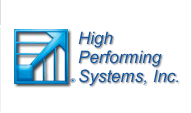Good relationships are good for business. Using Emotional Intelligence is like a fast track to getting along better with employees, co-workers and customers. This article is part of a series that highlights the different Subscales of Emotional Intelligence (EI) as measured by the EQ-i 2.0 and includes coaching tips for practical application and development. These articles are based on the EQ-i® model of EI published by MHS and on the work of Dr. Reuven Bar-On.
Emotional Intelligence Coaching: Four Steps to Strengthen Self-Awareness, Enhance EI
Improving performance in any area requires that you know how well you are currently performing. This applies to business performance: knowing your current sales or profit margin allows your organization to set goals for the future. In sports, elite athletes know their results on previous events so they can strive to reach their next personal record. This same concept applies to Emotional Intelligence (EI) as well. You must have self-awareness as the first step to development.
Emotional Intelligence is defined by Dr. Dick Thompson, President and CEO of High Performing Systems, Inc., as a person’s innate ability to perceive and manage his/her own emotions in a manner that results in successful interactions with the environment and, if others are present, to also perceive and manage their emotions in a manner that results in successful interpersonal interactions. There are several components to this definition, but the first part is critical—the ability to perceive your own emotions. This is what self-awareness is all about.
If you want to manage your own emotions better or improve relationships with others, it all starts with knowing yourself. Emotional Self-Awareness, as measured by the EQ-i 2.0 assessment, is the ability to recognize and understand your own emotions, as well as the causes of those emotions and the impact that they have on yourself and others. If you don’t recognize your own emotions or understand how they impact you, then it will be difficult to make positive changes. Engaging a professional coach or other similar professionals can help leaders, teams and organizations facilitate this process. Implementing strategies to improve self-awareness will enhance overall Emotional Intelligence and, ultimately, personal and professional success.
Four Steps to Improve Self-Awareness
If you ever get caught by surprise from your own behaviors or reactions (you may have asked yourself at some point, “where did that response come from?!?”), it’s possible that you could use some help with becoming more self-aware. Following are a few simple coaching suggestions to consider.
- Journaling. Try keeping a journal for a few weeks to record your emotions and what’s happening. Look for patterns. If you feel happy and excited about a new project at work, how do your teammates respond to your new ideas and suggestions? If you are frustrated because you’ve hit a major delay on a key deadline, how does your attitude impact your willingness to set a new schedule and move forward? As you track your feelings and their effects across time, you’ll begin to understand your emotions better.
- Use Tools to Help. Sometimes, self-awareness isn’t a person’s go-to response. You may just need a gentle nudge to remind you to pause and reflect. Something as simple as an alarm on your cell phone each day can help you step back from the hectic pace of your work day and make you think about your current mood and what’s influencing it. Being intentional about self-reflection is a good start to help make it become more natural.
- Get Feedback. Ask a trusted friend or colleague to give you honest feedback on their perception of your self-awareness. Do they ever notice that your words don’t quite align with your facial expression or body language? Do you say that you’re on board with a plan when other people don’t think you really are? Ask your friend to challenge you, nicely, to verbalize your emotions and feelings so that you can begin learning how to use emotional language to describe what you’re experiencing.
- Take an Assessment of Emotional Intelligence. A reliable tool such as the EQ-i 2.0 can help you understand your EI skills and competences better. The EQ-i 2.0—the most scientifically-validated Emotional Intelligence assessment available—measures the interaction between a person and his or her environment. The power of the instrument is in how the five Composite Scales and fifteen Subscales pinpoint a person’s behaviors and the motivations behind those behaviors (see below.). Receiving feedback on the results from a certified coach or trainer will help you recognize your EI skills and how to use them more effectively. It will also reveal areas that may be potential challenges for you, and you’ll get suggestions on what to do about them.
With intentional effort and practice, you can become more aware of your own emotions and their impacts on your behavior and interpersonal interactions. Improving self-awareness is the first step to improving your overall EI, and the results will be worth the efforts you make.
For a printable copy of this article, go here.
_____________________________________
Debra Cannarella is the Director of Operations at
High Performing Systems, Inc. (HPS), a consulting
company that provides assessments, consulting
and training solutions to
help organizations excel.
HPS conducts certification training on the EQ-i 2.0
assessment and provides
individual, leader and executive coaching to clients.
High Performing Systems is an award-winning world leader in EQ-i 2.0® certification (since 2005), EI training and implementation, leader coaching and success profiles. Call 706-769-5836 to talk with an experienced EI practitioner about your organization's specific needs.
|
